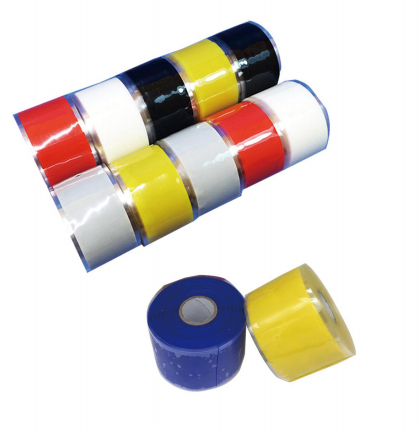Understanding 130c Electrical Tape Key Features and Applications
Electrical tape is an essential component in both professional electrical work and DIY projects. Among the various types available, 130c electrical tape has gained recognition for its versatility and effectiveness in diverse applications. In this article, we will explore the characteristics of 130c electrical tape, its specific uses, and why it is a vital tool for anyone working with electrical systems.
What is 130c Electrical Tape?
130c electrical tape refers to a specific type of insulating tape that can withstand temperatures up to 130 degrees Celsius (266 degrees Fahrenheit). This temperature rating indicates that the tape can effectively maintain its integrity and insulating properties even in high-heat environments. Typically made from a flexible PVC (polyvinyl chloride), this tape offers an excellent combination of durability and performance.
Key Features
1. Temperature Resistance As indicated by its 130-degree Celsius rating, this electrical tape is designed to operate in high-temperature conditions without losing its effectiveness. This makes it suitable for applications involving heat-generating electronic components, such as motors and transformers.
2. Electrical Insulation The primary function of 130c electrical tape is to provide insulation for electrical wires and connections. It effectively prevents short circuits, electrical leakage, and reduces the risk of electrical fires, ensuring safe operation in various electrical systems.
3. Waterproof and Chemical Resistant Many kinds of 130c electrical tape are designed to provide resistance against moisture and chemicals. This feature is particularly useful in outdoor applications or environments where exposure to water or chemicals is frequent.
4. Flexibility and Adhesion The tape is both flexible and strong, allowing it to conform to various surfaces and shapes. Its excellent adhesive properties ensure that it sticks well to wires and surfaces, which is essential for creating reliable, long-lasting seals.
130c electrical tape

Applications of 130c Electrical Tape
1. Electrical Wiring One of the most common uses of 130c electrical tape is for insulating electrical wiring in homes, offices, and industrial settings. Electricians frequently use it to wrap exposed wires, ensuring safety and compliance with electrical codes.
2. Repair Work This type of tape is invaluable for repairing damaged insulation on wires. It can quickly and effectively cover breaks or frays, extending the life of cables and reducing hazards.
3. Automotive Applications 130c electrical tape is often used in the automotive industry. It can secure and insulate wires in vehicles, protecting them from the high temperatures produced by engines and other components.
4. DIY Projects For home improvement enthusiasts and DIYers, 130c electrical tape is a handy tool for various projects. It can be utilized for crafting, organizing wires, and even as a temporary solution for insulation issues.
5. Industrial Use In heavy industrial settings, equipment is frequently subjected to harsh conditions. 130c electrical tape can withstand heat and chemical exposure, making it ideal for factory environments and machinery that operates under extreme conditions.
Conclusion
In summary, 130c electrical tape is a reliable and versatile tool for anyone working with electrical systems. Its high-temperature resistance, excellent insulating properties, resilience against moisture and chemicals, and flexibility make it an essential component in numerous applications. Whether you’re a professional electrician, a DIY enthusiast, or involved in industrial operations, having 130c electrical tape in your toolkit will enhance safety and ensure effective electrical performance. When selecting electrical tape, always consider the specific needs of your project to ensure optimal results.
-
Versatility with Tape Electrical InsulationNewsJun.09,2025
-
Floor Marking Tapes For WareHouseNewsJun.09,2025
-
Enhance Your Projects with PVC Electrical TapesNewsJun.09,2025
-
Enhance Your Projects with Automotive Wiring Harness TapeNewsJun.09,2025
-
Enhance Your Automotive Fabric TapesNewsJun.09,2025
-
Enhance Electrical Projects with Cambric TapeNewsJun.09,2025
